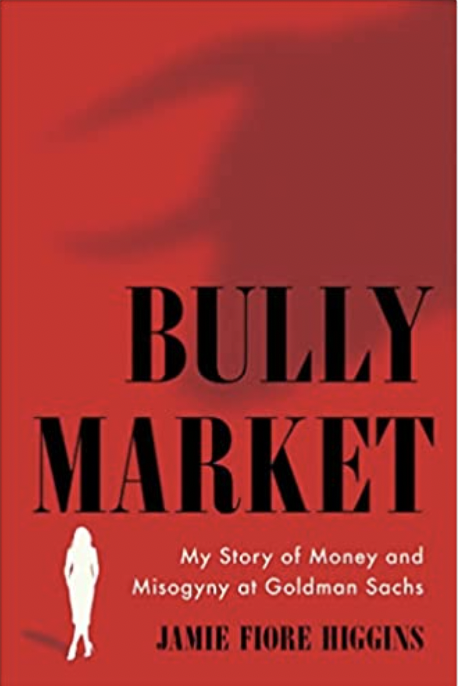
Life of abuse at Goldman Sachs


Jamie Flore Higgins, one of the few women at the highest ranks of Goldman Sachs, spurred on by the obligation to her working-class immigrant family, rose through the ranks and saw it all: out-of-control, lavish parties flowing with never-ending drinks, affairs flouted in the office, rampant drug abuse, and most pervasively, a discriminatory culture that seemed designed to hold back the few women and people of colour employed at the company.
Flore Higgins reveals Goldman Sachs having the right talking points and statistics, which provided a veneer to cover up what she found to be an abusive culture. Her account explains shocking stories of harassment, and jaw-dropping tales of exclusionary behavior, when she was told she only got promoted because she is a woman, when her co-workers mooed at her after she pumped for her fourth child, defying the superior who had advised her not to breastfeed, or when a male boss used a racial epithet in front of her, other colleagues, and clients without any repercussions.
Bully Market sounds the alarm on the culture of finance a d corporate America, while offering clear, actionable ideas for creating a fairer workplace. Flore Higgins, reveals extraordinary look at the industry and a top Wall Streeter’s explosive personal story, explaining one woman’s experience in a flawed system that speaks to the challenge and urgency for change.
More than 150 years after it was founded by Marcus Goldman and Samuel Sachs reveals the bank’s mystique.
Flore Higgins worked for Goldman Sachs for 17 years until 2016 and rose to become one of its most senior women bankers and explains what it was like to work as a woman at Goldman Sachs amid its macho culture.
One of her friends likens the bank to an abusive boyfriend who treats you like crap, then takes you out to a fancy dinner. She describes a string of incidents where she alleges that she suffered bullying, discrimination and manipulation, as Wall Street has been an inhospitable place for many women and minorities.
One day in 2016, she received a bonus that gave her the financial freedom to quit the bank, as she lived frugally throughout her time at Goldman, eschewing designer labels to shop at Marshalls and at Payless while tracking her progress towards liberalization in a “Spreadsheet of Freedom”. Her earlier decision to put off a career as a social worker to instead maximise – at the urging of her parents- her earning potential, which led her to Goldman Sachs, where she worked as sales trader in the bank’s formidable markets division.
Her job was schmoozing investors to allow Goldman to borrow their stock, which the bank would then lend to hedge funds wanting to take short positions.
She was at time complicit in harassment and abuse, while enduring a sexist and outdated culture. Mother of Four, Flore Higgins was told to stop talking about her kids at work and that one person found her “too motherly”. In another two traders joking about charting the physical measurements of Goldman’s new female analysts.
When Flore Higgins was promoted to manager of her sales desk, she responded to a subordinate having an affair with one of his clients by taking him off the account. He reacted by grabbing her throat and pinning her against the wall. “ If I could, I’ll rip your fucking face off” she recounts him saying.
Flore Higgins also details an affair with her boss that tests the foundations of her marriage.
Goldman says that it strongly disagrees with the author’s “characterization of Goldman Sachs’ culture and these anonymized allegations, and that it has a zero tolerance policy for discrimination or retaliation against employees reporting misconduct”.
Bully Market ends with the aftermath of the #MeToo movement, which changed the landscape to the extent that Flore Higgins believes some of the treatment she endured would not be tolerated today.
Bully Market: My Story of Money and Misogyny at Goldman Sachs by Jamie Flore Higgins, Simon & Schuster $28.99, 320 pages.
